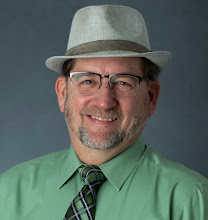This is the advice I have received on multiple occasions, from close friends who know me well, as I have stumbled through the transitions of separation, divorce, relocation, and career change. It seems both simple and wise, a much-needed encouragement to avoid the private despair that so often accompanies significant change and deep loss. And yet its simplicity masks its complexity. Few things confound me more than the contemplation of my own true self. And the task of rebuilding all the external components of my life - home, family, friends, career - seems to demand that many aspects of my "self" must necessarily be discarded and replaced. How can that be done without losing key ingredients of one's identity? Which elements of the "old self" need to be retained, and which ones rejected? How can the "new self" be true to the original, without clinging foolishly to failed patterns and toxic traits?
To remember who you are, you must first have known yourself. It has been said that we rarely (if ever) truly act on our own self-understanding. More commonly we act and react based on other people's opinions of who we are (or should be). More precisely, we act based on our perception of other people's opinions of who we are. Simply put, I tend to behave based not on who I am, but on who I think you think I am. Silly as it seems, this is essentially the only escape from the limits of self-perception. Like trying to arrange mirrors in a way that lets me see the back of my own head, the geometric contortions required to perceive myself clearly are, to say the least, awkward. So we substitute the perceptions of others for our own, and spend our lives searching for those others whose honesty and insight we most deeply trust. When you have found a friend who knows how and when to tell you that you have something stuck between your teeth, you have found a friend worth keeping.
And then there is the problem of listening. It is one thing to hear and to heed a warning about an oncoming car I didn't see; it is quite another to accept and appropriate a word of caution about flaws in my character and integrity. When Bobby Alley, my best friend in fifth grade, told me that I cried too much, I didn't want to hear it. Of course I heard what he said, but I didn't want to accept his opinion as true, even if it was. I didn't want to dig into the vulnerable and sensitive areas of my self-image. I didn't want to attempt a change at that level. I didn't want to risk the possibility that he might be right, or the fear that such a fault might be painfully difficult to repair. On that occasion, I knew Bobby was right, and I slowly and weakly began to address the issue. More recent occasions are more difficult to discuss.
Being one's true self is not a static proposition. Change and growth (and also decay) are essential parts of who we are. We are temporary, transitory beings. Self-understanding is a moving target. Who we were, who we are, and who we will be are not all the same thing, although they are deeply intertwined. People who haven't seen me for twenty years or so may recognize me - by piecing together physical characteristics and personal quirks that have survived the changes - but they will also notice the changes, for better or worse. Gray hair, an expanding waistline, and wrinkles seem to be the easiest to spot. Signs of maturity and deepening grace are hoped for, but less likely. The seasoning that comes from facing difficulty is deeply shared, particularly among the seasoned. Perhaps it is the continuum of change itself that makes people most interesting to each other.
Self-understanding also grows and changes. Never complete, and never completely accurate, it nevertheless tends to improve over time. We refine and correct misperceptions. We cause and suffer damage to our self-esteem and self-image, and work to heal and repair. And to a certain extent, the greater the damage, the deeper the growth. The pride that protects and defends our most vulnerable parts must itself be broken up from time to time, like a shell or a cocoon, to permit new growth from within.
Most perplexing of all, it often seems to me that self-understanding is ultimately self-defeating. The time and energy I spend analyzing myself seems to take away from actually "being" myself, and self-consciousness becomes an obstacle to self-expression. Without understanding how or why, I seem to be most "like myself" when I am thinking least about myself, and focused most intently on the people around me.
So is it possible, after all this rambling, that the best way to remember who I am is to basically forget about myself, and just focus on the people around me, the people I love?
hmmm......

